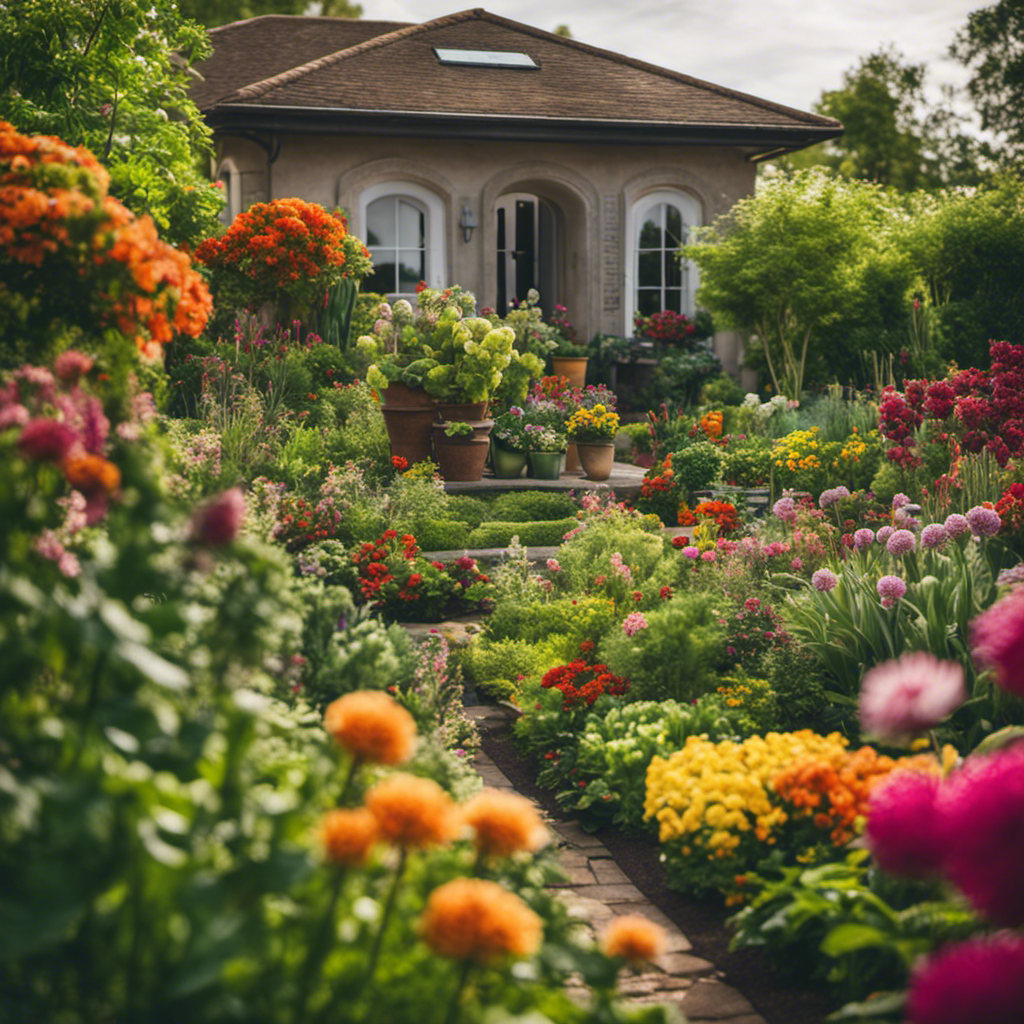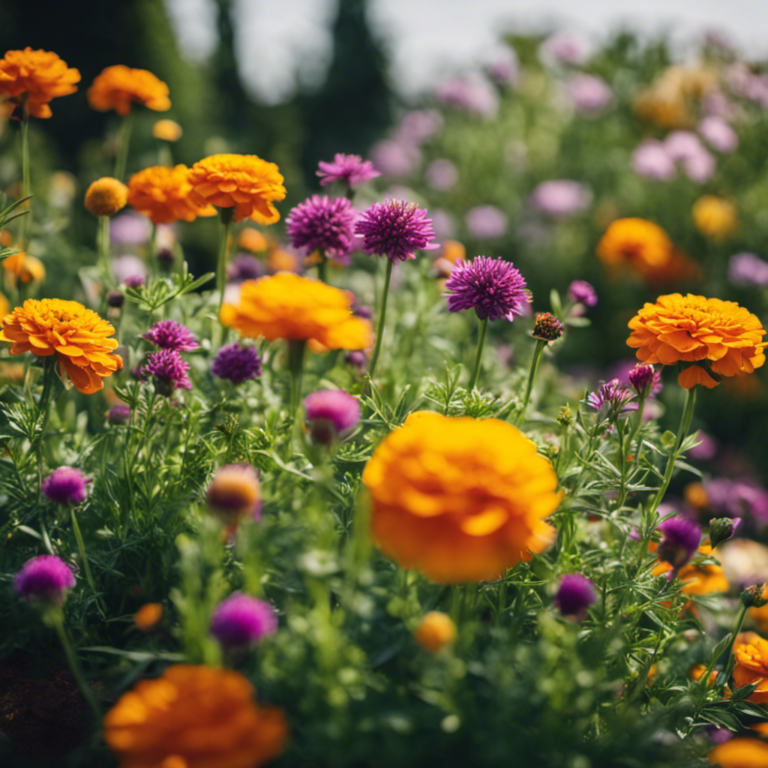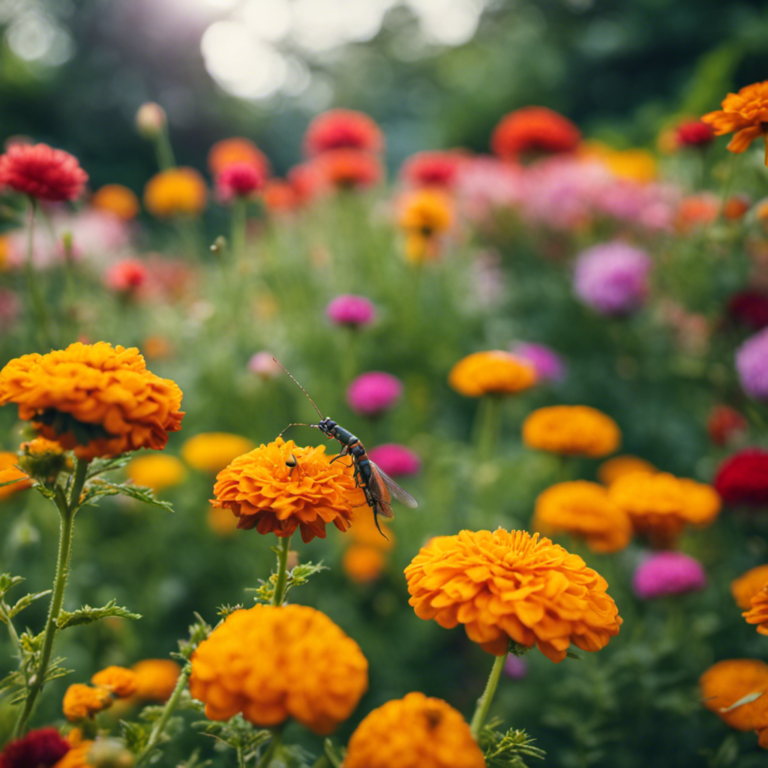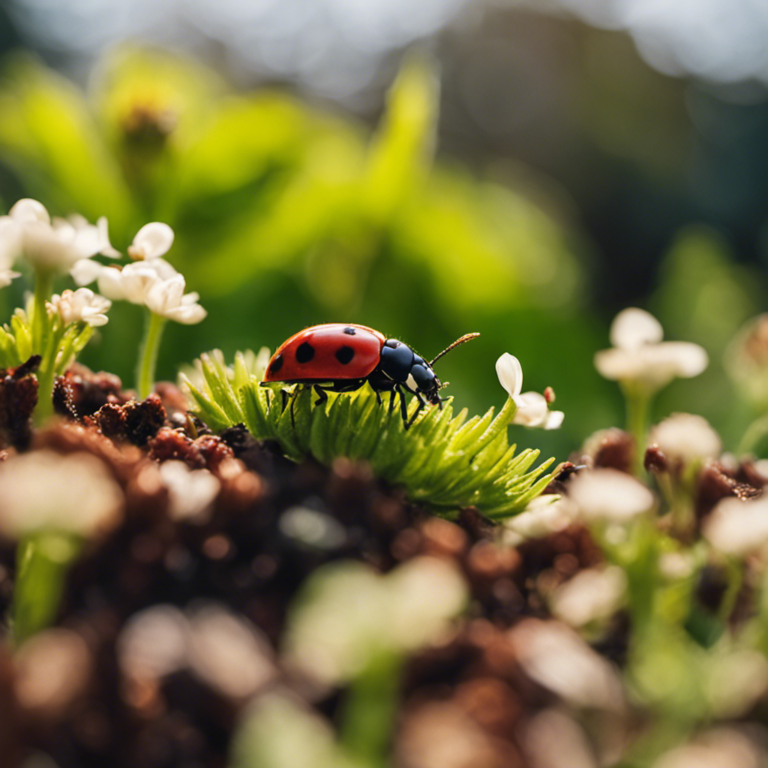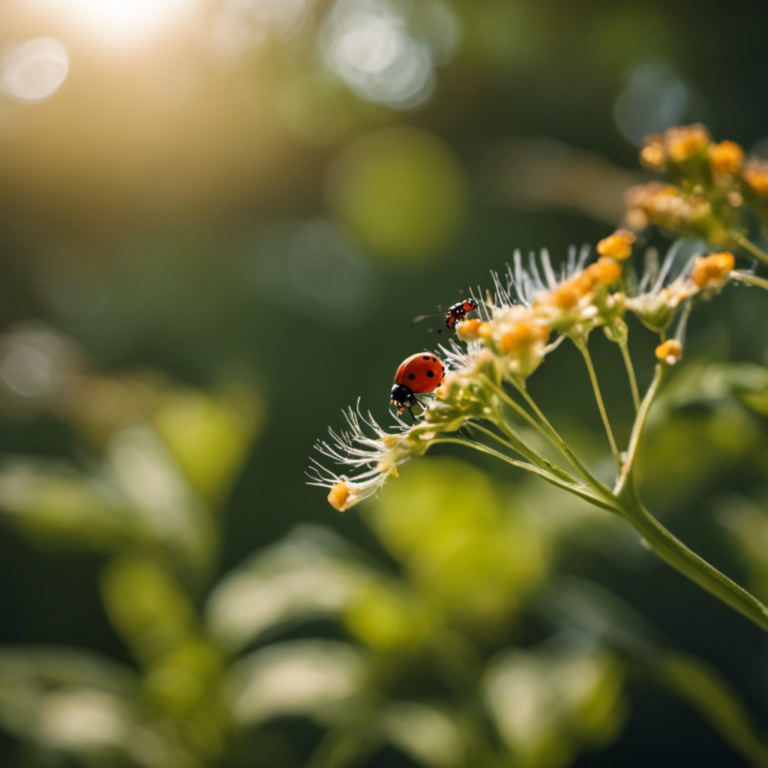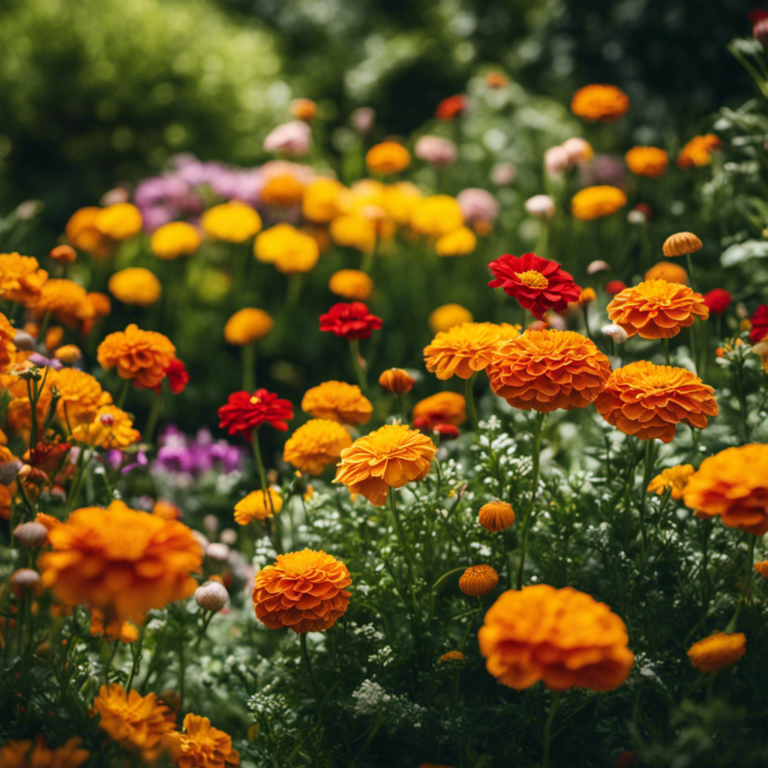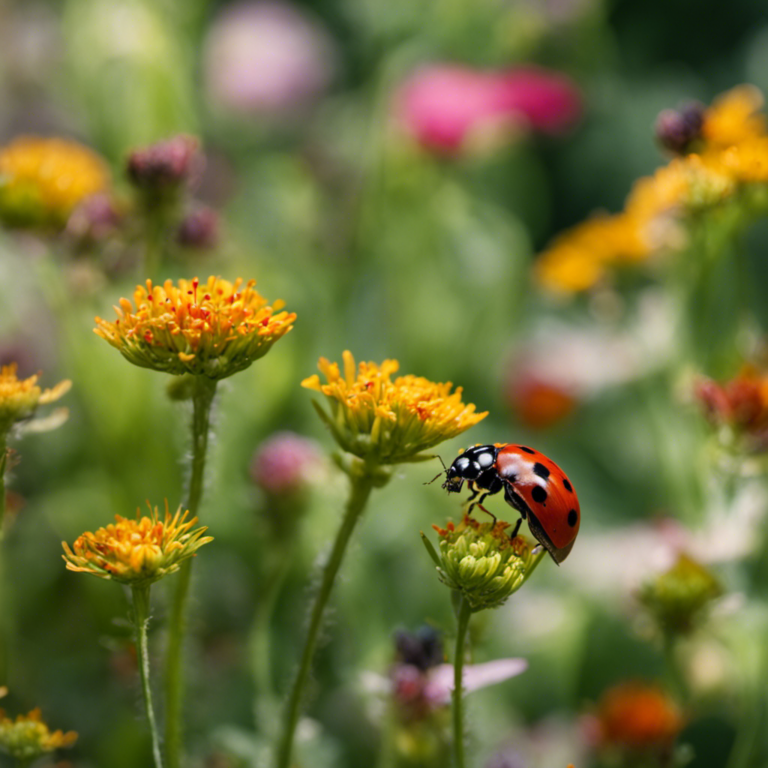Are pests causing problems in your home garden? Don’t worry, you can learn about eco-friendly pest control methods that are effective and safe for the environment.
Imagine having a garden that is free from harmful chemicals. By using natural repellents, beneficial insects, and companion planting, you can protect your plants naturally.
You can also create physical barriers to keep unwanted pests away and use organic pesticides when needed.
Embrace the power of nature to maintain a thriving garden while also benefiting the environment.
Key Takeaways
Green Pest Control Tactics for Home Gardens
Incorporating environmentally-friendly pest control tactics can help create a balanced ecosystem in your home garden. By using natural repellents, beneficial insects, companion planting, physical barriers, and organic pesticides, you can protect your plants from harmful pests while promoting a healthy and vibrant environment.
These methods act as a protective shield, safeguarding your plants and ensuring they thrive. Implementing these green pest control strategies can effectively defend against unwanted intruders in your garden, allowing it to flourish with beauty and abundance.
Natural Repellents
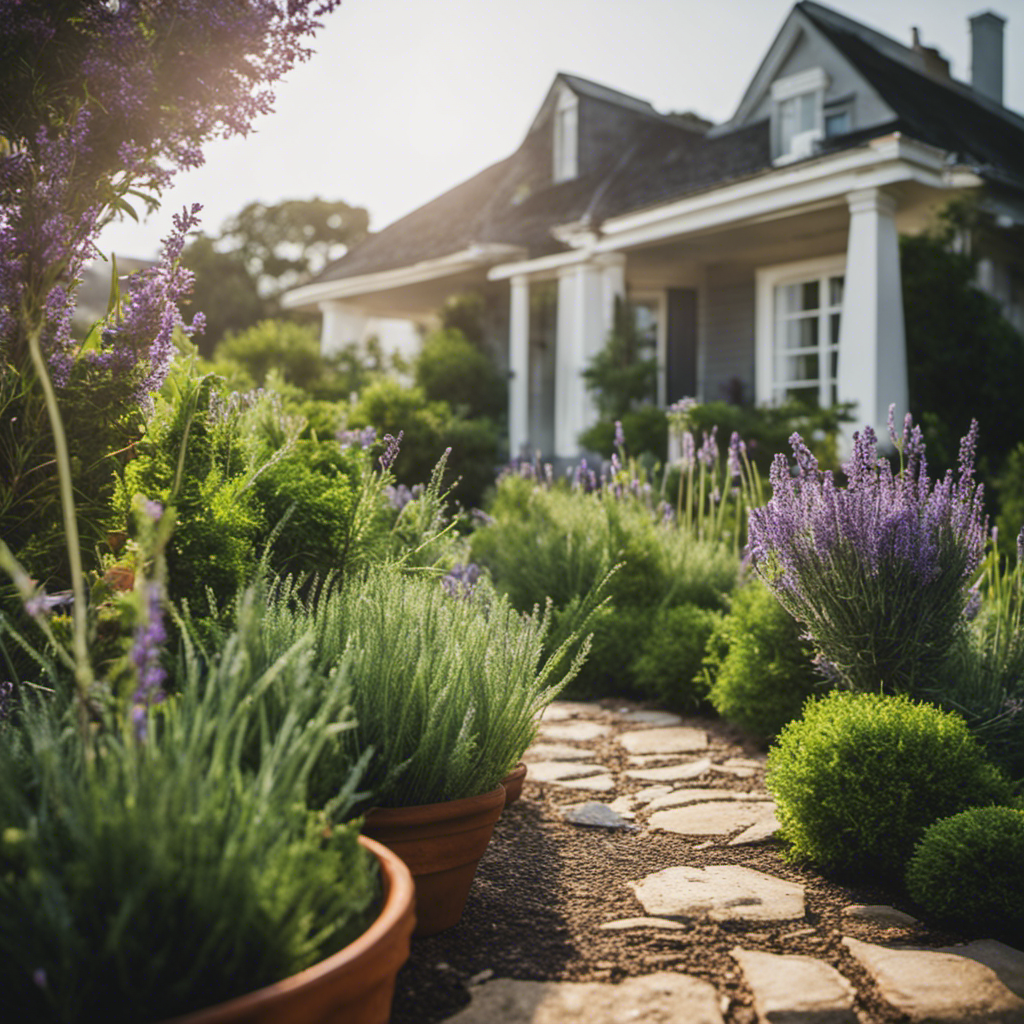
Keep pests away from your home garden by using natural repellents. Instead of relying on harmful chemicals, opt for biodegradable alternatives that are safe for your plants and the environment.
Homemade recipes are a cost-effective and efficient way to naturally repel pests. For example, a mixture of garlic, onion, and hot pepper can deter aphids and caterpillars. Blend these ingredients with water and spray the solution on your plants.
Another option is to create a solution using neem oil, a natural insecticide and repellent. Mix a few drops of neem oil with water and apply it to your plants.
These homemade remedies are effective and eco-friendly, promoting the health and well-being of your garden.
Beneficial Insects
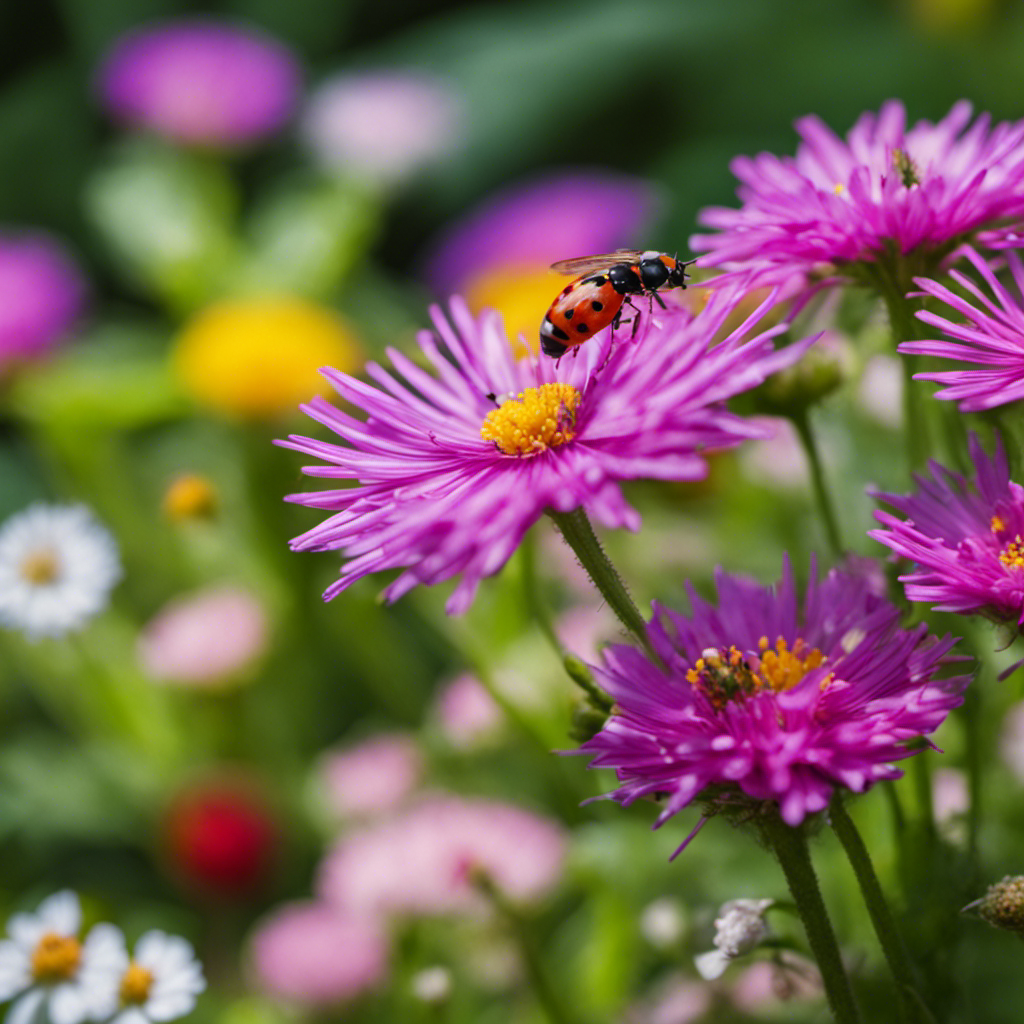
To protect your home garden in an environmentally friendly way, consider utilizing beneficial insects. These insects are essential for pest management and can help maintain a healthy garden.
Integrated pest management (IPM) is a holistic approach that relies on natural enemies of pests to control their populations. By attracting and safeguarding beneficial insects like ladybugs, lacewings, and bees, you can create a balanced ecosystem that minimizes the need for chemical pesticides.
For instance, ladybugs feed on aphids, while lacewings prey on various garden pests. Bees, on the other hand, are crucial pollinators that ensure the reproduction of flowering plants.
Companion Planting
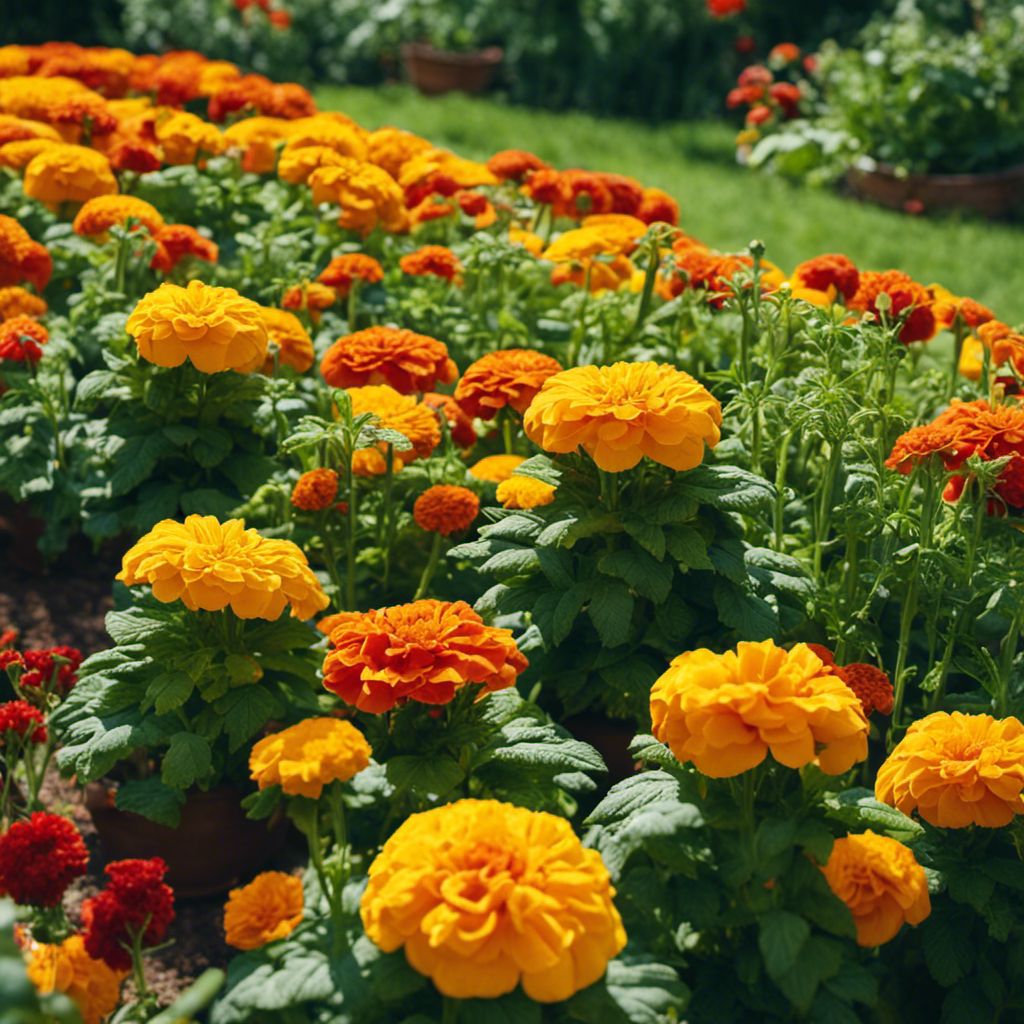
Improve pest control in your home garden by incorporating companion planting techniques. Companion planting involves planting different crops together to create a mutually beneficial environment. Here are three ways companion planting can benefit your garden:
-
Natural Pest Control: Certain plants, when grown together, can naturally repel pests, reducing the need for chemical pesticides. For example, planting marigolds alongside vegetables can deter aphids and nematodes.
-
Soil Enrichment: Companion planting can also help improve soil health by adding organic matter and nutrients. For instance, planting legumes like beans or peas alongside nitrogen-demanding plants like corn or tomatoes can enrich the soil with nitrogen.
-
Crop Rotation: By alternating crops in different areas of your garden each year, you can prevent the buildup of pests and diseases. This practice disrupts the life cycles of pests and prevents them from becoming established.
Incorporating companion planting techniques, such as natural pest control, soil enrichment, and crop rotation, can help you maintain a healthy and productive garden while reducing the use of harmful chemicals. Remember, a diverse and well-planned garden is key to successful companion planting.
Physical Barriers
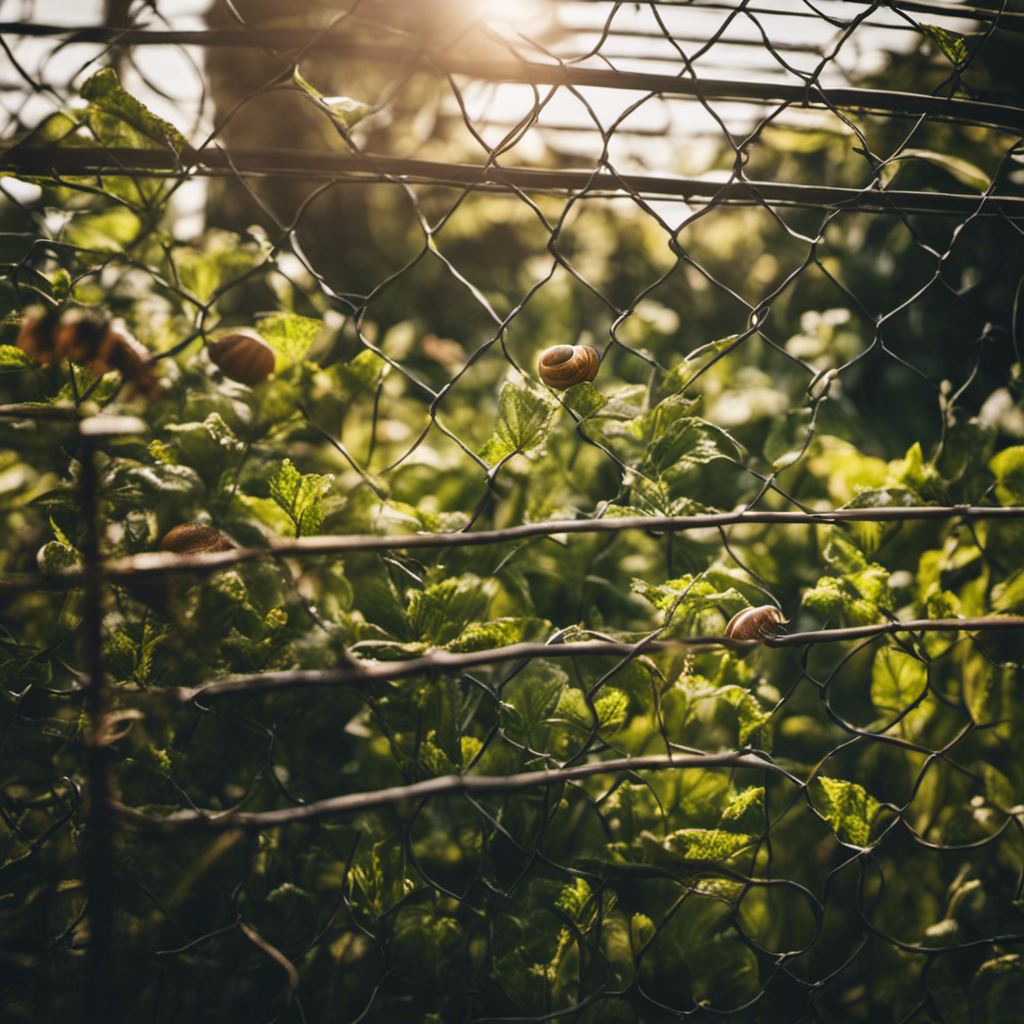
Protect Your Home Garden with Physical Barriers
To prevent pests from damaging your precious plants, consider using physical barriers around your home garden. Physical barriers are a highly effective method of pest exclusion that can keep unwanted critters at bay. These barriers work by physically blocking pests from accessing your garden, thus preventing them from causing harm and spreading diseases.
There are several common types of physical barriers that you can use. Fences, made from materials like metal or wood, can be installed deep into the ground to prevent pests from burrowing underneath. Netting and row covers, on the other hand, are made from fine mesh materials that allow sunlight, air, and water to pass through while keeping pests out.
It is crucial to ensure that these physical barriers are securely installed and properly maintained for optimal protection of your home garden. By implementing these measures, you can maintain a healthy and pest-free environment for your plants to thrive.
Organic Pesticides
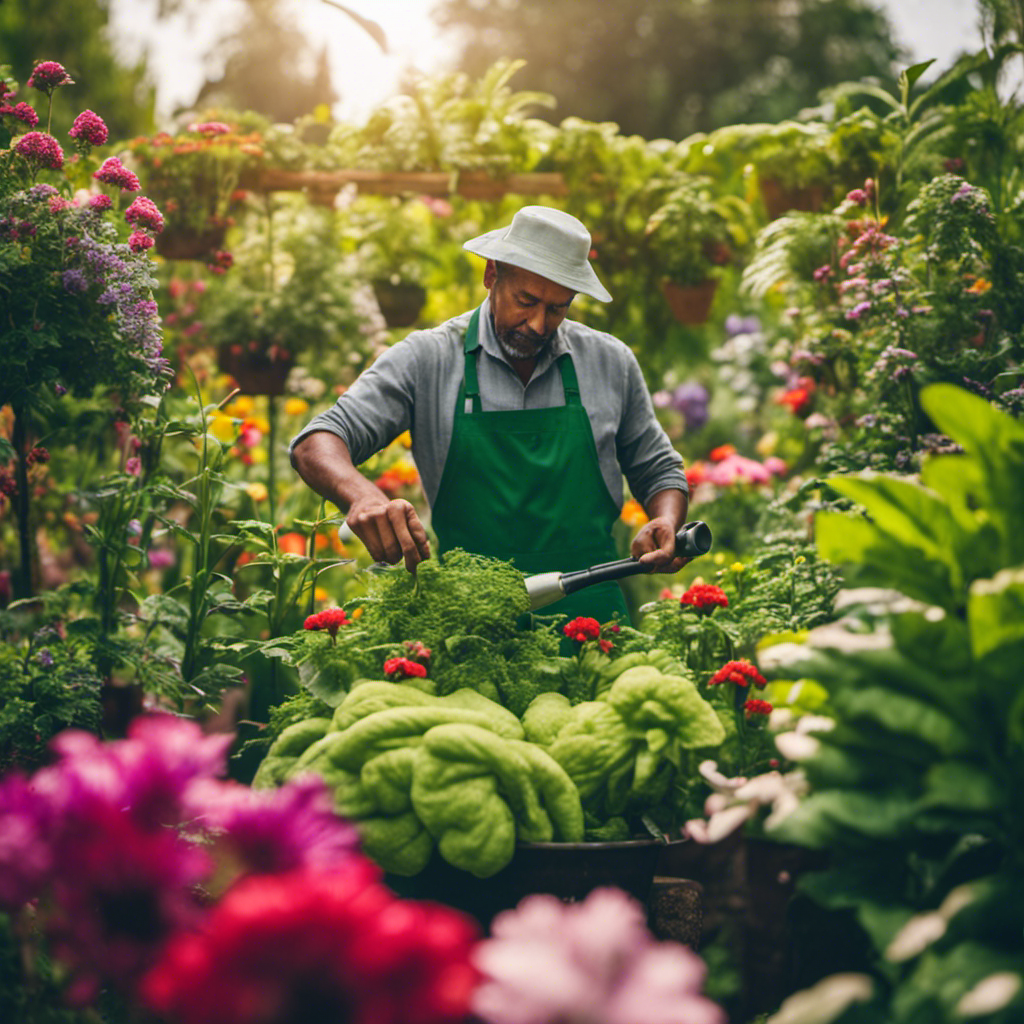
Protecting your home garden from pests can be effectively done using organic pesticides. These natural alternatives to chemical pesticides not only ensure the safety of your plants but also safeguard your health and the environment.
Let’s explore three types of organic pesticides that you can use to control pests in your garden:
-
Biological controls: These are living organisms that naturally regulate pest populations. For example, ladybugs can help control aphids by consuming them.
-
Homemade remedies: You can create your own organic pesticides using common household ingredients. For instance, a mixture of water, dish soap, and garlic can repel insects like beetles and caterpillars.
-
Botanical insecticides: Derived from plants, these pesticides are effective in pest control. Neem oil, extracted from the neem tree, is a prime example as it repels a wide range of insects.
By utilizing these organic pesticides, you can protect your home garden without causing harm to the environment or compromising your well-being.
Conclusion
By incorporating environmentally-friendly pest control tactics such as natural repellents, beneficial insects, companion planting, physical barriers, and organic pesticides, you can create a balanced ecosystem in your home garden.
These methods act as a protective shield, safeguarding your plants from harmful pests while promoting a healthy and vibrant environment.
Embrace these techniques as effective defenses against unwanted intruders in your garden.
With these green pest control strategies, your garden will thrive with beauty and abundance.
